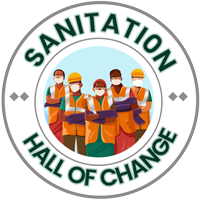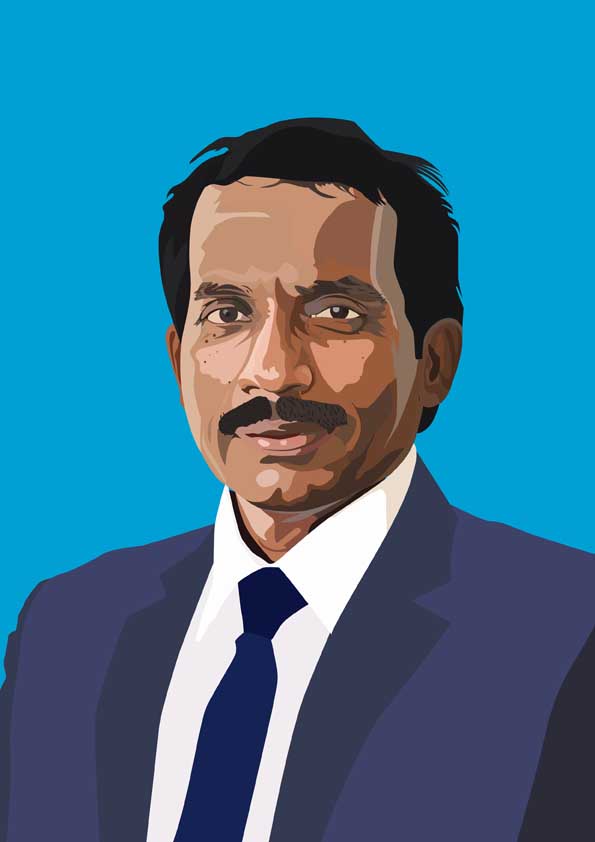With an unwavering commitment to inclusive sanitation, Mathi Vathanan has harnessed his team's dedication to transform Odisha's urban development landscape. Mathi has been the Commissioner and Secretary of the Department of Housing & Urban Development, Government of Odisha, since 2014. Under his leadership, Odisha witnessed the launch and effective implementation of various sanitation policies and guidelines.
Mathi Vathanan's vision was deeply rooted in addressing the social stigma and the lack of sufficient compensation for core sanitation work. He spearheaded multiple comprehensive schemes and policies that ensured that services reached the most vulnerable and that the service providers live safe and dignified lives. His passion to bring sustainable change to the lives of sanitation workers became a driving force for relentless effort.
The remarkable 'GARIMA' scheme, initiated in 2020 under Mathi's guidance, played a pivotal role in ensuring efficient sanitation systems and dignified lives for sanitation workers. This groundbreaking scheme provides welfare measures to those who directly handle faecal matter in their line of work, covering areas like community and public toilets, wastewater treatment plants, drain cleaning, and maintenance of confined spaces such as septic tanks and sewer lines. By consulting workers about what their requirements were, Mathi ensures that they were involved in the process as advisors whose insights were taken absolutely seriously. Working closely with the Chief Minister of Odisha, Mathi led the consultative process that brought together stakeholders, sector experts, and community voices to shape the GARIMA scheme, which addressed all concerns raised by the stakeholders, thus enabling dignified livelihoods for sanitation workers.
Mathi’s motivation in conceiving the GARIMA scheme was to address the generational injustice implicated in manual sanitation work and the safety threats that workers faced while handling faecal-matter. There was not only the lack of a comprehensive scheme which addressed safety and dignity, but also the lack of information on the number of workers and the extent of danger they faced. Once they conducted a sincere study, they were able to implement a variety of solutions. Specific PPE kits tailored to various core sanitation roles were identified and recommended for procurement by Urban Local Bodies. To alleviate the challenges faced by workers in handling and cleaning, GARIMA rest sheds were established, providing a safe space to rest, store PPE, and clean equipment. These sheds allowed sanitation workers to separate their work from the rest of their lives by cleaning themselves and storing their uniforms, which helps alter people’s perceptions of sanitation workers as “dirty” or unhygienic and enables dignified working conditions.
Mathi believes that an empathetic and collaborative approach is crucial for the effective implementation of schemes targeted at vulnerable sanitation workers. Convergence, cross-learning, and sensitivity to worker needs are key to introducing worker-friendly policies and practices. The Department initiated Emergency Response Sanitation Units, adopting national advisories tailored to state requirements for better on-ground implementation.
Under Mathi’s leadership, Odisha has won some prestigious international awards for sustainable urban development such as the Global Water Leader Distinction Award 2022 for 24x7 Drink from Tap, World Habitat Award 2019 and 2023 for the JAGA Mission, the Asia Pacific Housing Forum Award 2021 for JAGA Mission, the WRI Ross Prize for Cities for MUKTA in 2021-22, among many others.
Having won multiple trans-national and global awards, Mathi emphasizes the importance of identifying and registering sanitation workers to ensure they access their rights and entitlements. He plans to engage with private contractors, encouraging them to adopt model contracts that foster safe and dignified work environments. By reshaping the occupational landscape, Mathi aims to challenge societal mindsets and ensure sanitation workers lead dignified lives. Through synergy among stakeholders and robust enumeration processes, Mathi is driving transformative change for sanitation workers in Odisha, underpinned by the Garima scheme's ideals of dignity and safety.
To Learn More about the GARIMA Scheme: https://urban.odisha.gov.in/more/GARIMA

